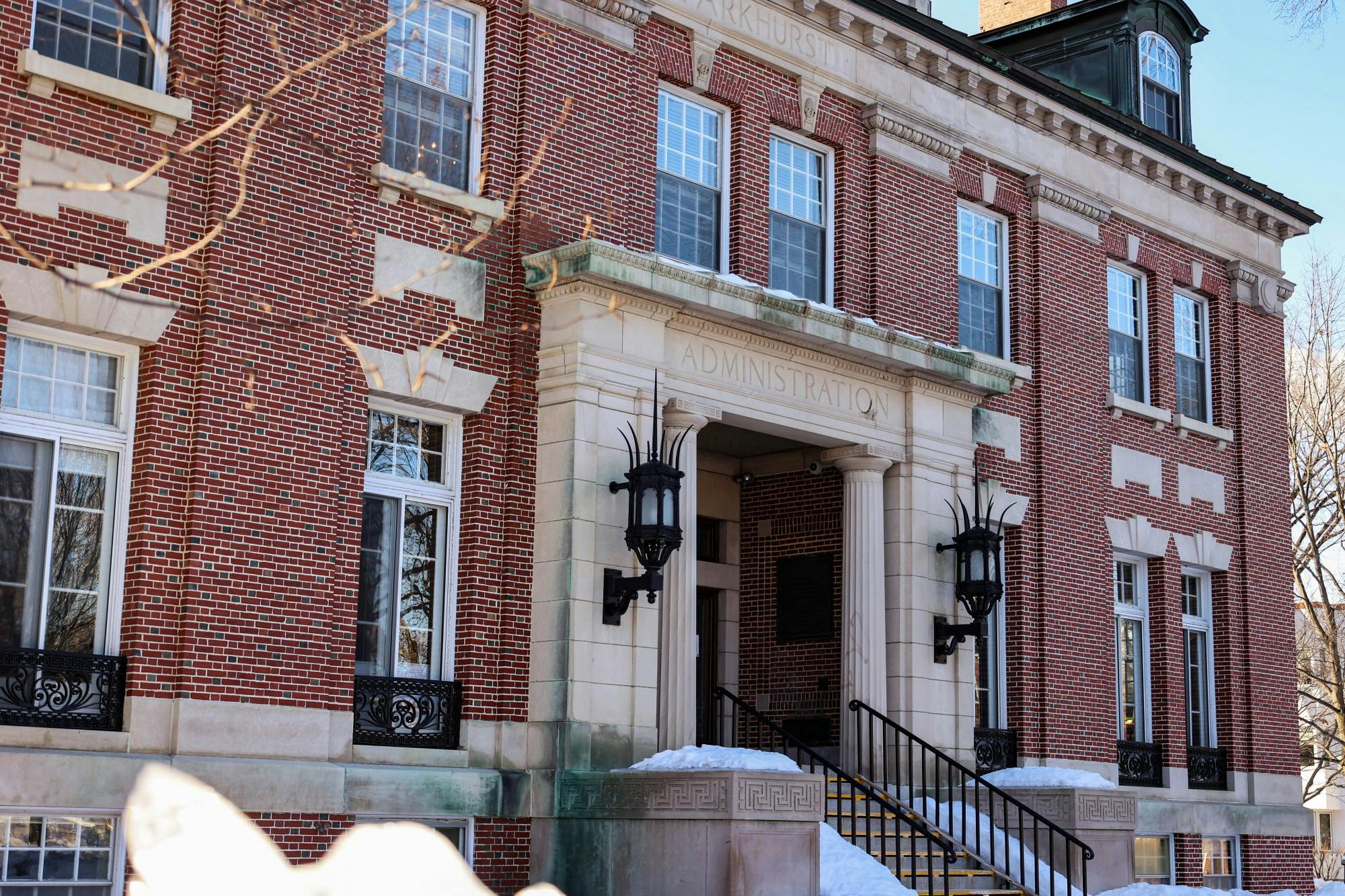The chairs of the College’s presidential search committee hosted three listening sessions for staff, faculty and students to discuss the criteria for Dartmouth’s next president on Feb. 10. College President Phil Hanlon announced his plans to step down in June 2023 in an email to the Dartmouth community at the end of last month.
The chairs of the search committee — Susie Huang ’84 and Christopher Lord ’84, both members of the Board of Trustees — were appointed by Board chair Elizabeth Cahill Lempres ’83 Th’84, according to a press release from the Office of Communications. The two chairs hosted the three listening sessions throughout the afternoon on Jan. 10, and community members voiced their thoughts on the presidential search. The listening sessions, held in a webinar format, were open to any questions or comments on the search process, and the chairs would respond accordingly.
Both chairs and vice president of communications Justin Anderson hosted the first session, which was for staff.
Dartmouth Institute research project director Christian Spalding stressed during the staff session that the incoming president should focus on issues like the importance of child care options for younger professionals in a rural area like the Upper Valley.
“It’s very tough to be a young person starting a family buying a house in the area, and I know that’s not directly the responsibility of the school, but I definitely think it is limiting the recruitment options for professionals,” Spalding said.
Sustainability office director Rosi Kerr said the College’s rural setting could instead be viewed as an asset. She explained that she has seen the “pendulum” swing “back and forth” on how presidents view Dartmouth’s location as either a strategic asset or a challenge.
“I view Dartmouth’s identity and our location and many of the elements of our past … [as] real strategic opportunities, and I hope our next president will lean into Dartmouth’s size and location as an opportunity,” Kerr said.
Senior director of admission Gregory Chery said that the next president should value retaining staff of color within the College. Before coming to Dartmouth, Chery said that many staff of color at his previous institutions would leave.
“Both places when I left, those summers, there were other people of color leaving for all different reasons, so I think that should be something that the [next] president should care about,” Chery said.
He also said that retaining staff of color should be about facilitating their mobility on campus.
“I obviously do encourage efforts to hire staff and faculty of color, but [with] the ones that we have, let’s make intentional efforts to retain them and have intentional plans to help them move up or move around, so we don’t lose them [or] other colleges take them away,” he said.
During the session that was held for undergraduate and graduate students, Lord confirmed that there will be a selection for an undergraduate and graduate representative on the search committee within the next week. In the session, attendees raised concerns about the efficacy of some of the College’s policies, a divided student body and the need for a bold president.
The College announced restrictions to social gatherings and in-person dining on Dec. 17., amid the spread of the omicron variant. For the first two weeks of winter term, students could only take out grab-and-go meals from campus dining.
Damien Jeffers ’23 said in the session that some of the College’s policies — specifically concerning COVID-19 — are unrealistic.
“Those [COVID-19 policies] have made things like dining and socialization harder, but they also cause different kinds of backlash too, where people would refuse to follow the rules because they were too tight,” Jeffers said.
Muhammad Abubakar Khan, a PhD student studying mollecular and cellular biology, said that there is a division between graduate and undergraduate students at Dartmouth.
“I think there’s a divide between the graduate students and the undergrads,” Khan said. “I understand that it is Dartmouth College, and it will never be a university. But I have never seen the past president come out and address the graduate students, and it’s always been undergrads,” he said.
Francisca Fadairo ’25 said that the next president should be unafraid to make unpopular decisions and “foster some sort of college identity.”
“What I just wanted to contribute is something that you could ask … how do they show boldness in making decisions that maybe a lot of people are up against, but are essential to the bigger progress of the school,” she said.
Both Huang and Lord declined to comment for this article. Anderson did not respond to requests for comment. The Dartmouth attended both the staff and the student listening sessions, but not the faculty listening session.




